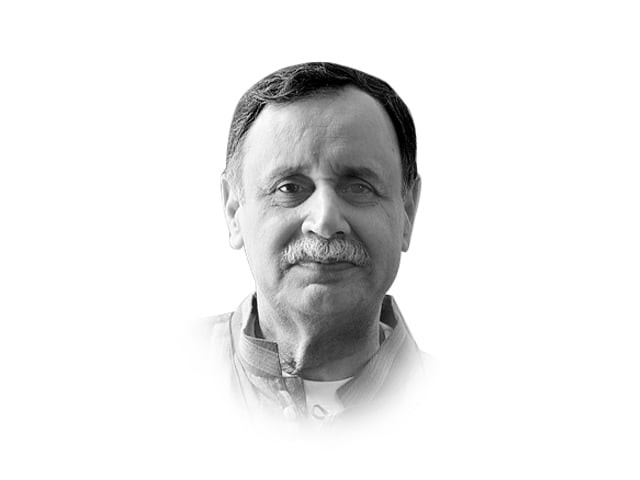Are we promoting child abuse?
Knee-jerk responses have little impact on reducing incidents of sexual abuse

As the video of the sexual abuse incident began to spread like wildfire, the madrasa Mufti fled the command post from where he freely abused his captive audience. His temporary disappearance caused two major uproars that consumed the Pakistani nation for several days. First, whether he had been caught or not; and second, he needs to be promptly hanged on a lamppost or hurled down the Minar-e-Pakistan as an example for future sex offenders.
Such knee-jerk responses have little impact on reducing incidents of sexual abuse. On the contrary, they contribute towards diluting the real issue and keeping things as bad as they always were. The vocal citizenry fails to understand that situations do not change by the number of likes, tweets or expressions of disgust on social media. They change only by our understanding of their causes and our willingness to fix them.
Do our institutional mechanisms, infrastructure and policies not provide a nurturing environment for the crime of sexual abuse in general and child sexual abuse, in particular? Let me state seven basic reasons why this heinous crime will continue to flourish.
First, the government has no data on the number, name or location of its 60% children under the age of six years. It has no data on the number of madrasas or the teachers and students enrolled therein. It has no data on the number of incidents of child abuse, other than what may be reported by a private NGO.
Second, no attempt has been made to implement a formal child abuse protection policy in schools and madrasas across Pakistan.
Third, with 25 million children out of school and millions working as labourers in the streets, homes and factories, we have created the perfect conditions and opportunities for child abuse.
Fourth, the employment laws and the Constitution are in fact ‘supportive’ of child labour by falsely defining ‘child’ as someone below the age of 14 years.
Fifth, the child protection organisations, commissions and authorities in Pakistan are complex, jargonised and self-consuming bureaucratic structures. Keen on operating at a sanitised ‘policy’ level, they have little ability to influence situations on ground.
Sixth, our failure to realise that extreme poverty makes people force their children to work as domestic, commercial or mine workers is not an assumption but a reality.
And finally, what trumps all other factors is the daily addition of 16,787 new children in a compound that is already splitting at the seams.
The tools and techniques needed to address these causes are well-known. They have however been consistently ignored. The formation of the already legally-mandated organisation, ZARRA, has been wilfully delayed. We are unwilling to monitor and control not just the syllabi but also the abusive practices that are rampant in our seminaries. We are unwilling to provide the minimum wage and EOBI to our workforce thus keeping them enslaved, exploited and below the poverty line. We mislead donors as well as our own people by making false claims such as “child labour is not permitted in Pakistan”.
Population, poverty and child abuse are inextricably interlinked. To quote Dr Pervez Hoodbhoy, “No one in government dares talk openly about population planning or contraceptives except with bated breath and only after looking over their shoulder. Although Pakistan produces as many people as the state of Israel every two years, yet it abolished the ministry for population planning long ago and replaced it with some obscure, non-functioning organisation in each province.” The children of Pakistan were not created to be abused. We can only reduce their pain and misery by addressing the harsh realities described in this article.
Published in The Express Tribune, June 23rd, 2021.
Like Opinion & Editorial on Facebook, follow @ETOpEd on Twitter to receive all updates on all our daily pieces.












COMMENTS
Comments are moderated and generally will be posted if they are on-topic and not abusive.
For more information, please see our Comments FAQ